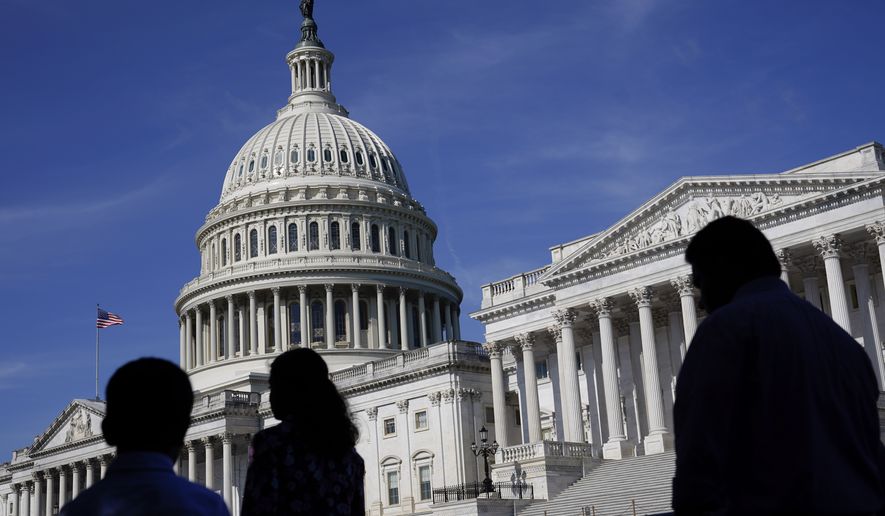Sen. Joe Manchin III made the rounds on Sunday’s talk shows to reject the notion that Democrats’ new spending bill — the Inflation Reduction Act — would exacerbate inflation that is at its highest rate in four decades.
That is despite an independent analysis by the Penn-Wharton Budget Model finding it will “slightly increase” inflation until 2024 then decrease thereafter and a nonpartisan congressional committee concluding it would raise taxes on Americans across income brackets.
Mr. Manchin’s inflation concerns were what initially prompted him to oppose similar legislation just weeks earlier.
“I understand there’s a difference of opinion. But everybody, if they look at this bill objectively, we’re paying down $300 billion in debt,” the centrist West Virginia Democrat told ABC’s “This Week.” “The first time in 25 years.”
Mr. Manchin went on to highlight the energy and climate spending portions of the bill that are designed to boost U.S. production of rare earth minerals and clean manufacturing.
“They’re not factoring any of that in,” he said of the economic forecast.
SEE ALSO: Sen. Joe Manchin won’t say if he wants Democrats to retain control of Congress
Mr. Manchin also has rejected the notion that the bill would increase taxes. He has argued that it would close loopholes that allow large corporations and wealthy individuals to pay at lower rates.
The legislation’s 15% corporate minimum tax would affect about 200 of the country’s largest corporations with profits exceeding $1 billion that currently pay under the current 21% corporate rate.
The new spending comes at a time when indicators suggest the U.S. economy may already be in a recession. There have been two consecutive quarters of economic contraction, an unofficial recession indicator.
“The corporate tax increase is going to slow down growth, probably exacerbate a recession that we’re probably already in,” Sen. Pat Toomey, Pennsylvania Republican, told CNN “State of the Union.” “They’re going to take this money and spend it on corporate welfare for green energy, subsidizing wealthy people buying Teslas.”
The legislation includes $369 billion for clean energy and climate provisions, which Democrats argue would be offset with the new revenue and would reduce the deficit by $300 billion over the next 10 years.
The nonpartisan Joint Committee on Taxation has estimated that the bill will increase taxes by $16.7 billion on workers earning less than $200,000 and that at least half of new revenue raised would come from those earning less than $400,000.
Democrats, including President Biden, have hailed the Inflation Reduction Act as the antidote to high inflation. But the Penn-Wharton study found it would cause inflation to increase by 0.05% in 2024 before cutting inflation by 0.25% before the end of the decade.
Republicans have accused Senate Majority Leader Charles E. Schumer, New York Democrat, of tricking them with secretive negotiations.
Last week, Senate Minority Leader Mitch McConnell, Kentucky Republican, helped deliver GOP support for a $52 billion bipartisan bill to boost domestic microchip manufacturing to compete with China in exchange for what Republicans thought was an agreement with Democrats to drop the party-line tax-and-spend measure. The chip legislation also included $200 billion for scientific research over the next decade to take on China.
Hours later, the deal between Mr. Manchin and Mr. Schumer was announced, promoting outrage from Republicans.
• Ramsey Touchberry can be reached at rtouchberry@washingtontimes.com.




Please read our comment policy before commenting.